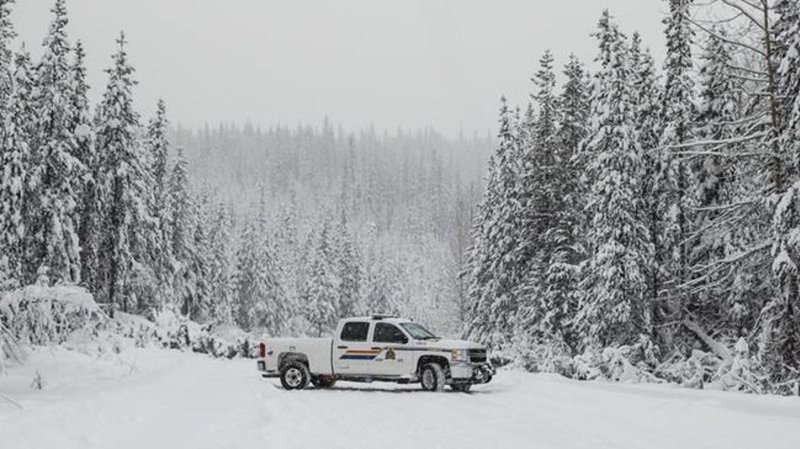
Tensions building in Wet’suwet’en territory as B.C. pipeline conflict continues
HOUSTON, B.C. — Mounties in northern British Columbia say they are enforcing an injunction barring protests from blocking an access road used by Coastal GasLink pipeline workers.
The RCMP wouldn’t confirm Thursday if arrests had been made. A spokesperson for protesters who set up a blockade along the road said in a video posted online that officers had read out the injunction order and then began arresting people.
The blockade was set up Sunday by members of the Gidimt’en clan, one of five in the Wet’suwet’en Nation, cutting off access for more than 500 pipeline workers. The workers had been given eight hours’ notice to leave, the group said in a statement.
Gidimt’en spokesperson Sleydo’, whose also goes by the English name Molly Wickham, said the court-ordered injunction has no authority on their land.


